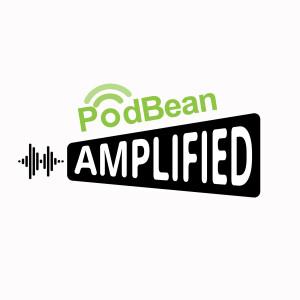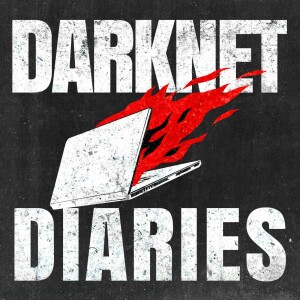

Chaos Computer Club - recent audio-only feed
https://media.ccc.de/podcast-audio-only.xmlEpisode List

Barrierefreiheit: Das Internet ist für alle da (dgna)
Digitale Dienstleistungen und Angebote sind aus dem Alltag nicht mehr wegzudenken. Von reiner Informationsvermittlung bis zur KI-Interaktion: Das Web ist unser ständiger Begleiter. Was aber tun all jene Menschen, die aufgrund von körperlichen oder geistigen Beeinträchtigungen nur bedingt oder im schlimmsten Fall gar nicht am Netz teilhaben können? Die Stiftung «Zugang für Alle» beschäftigt sich seit 25 Jahren mit genau dieser Frage und gilt als Kompetenzzentrum für Fragen rund um Barrierefreiheit und Inklusion im Netz. Dr. Andreas Uebelbacher und Mo Sherif vermitteln uns am Netzpolitischen Abend einen Einblick in das vielfältige Gebiet und die mannigfaltigen digitalen Herausforderungen, welche Menschen mit Beeinträchtigungen täglich meistern. about this event: https://www.digitale-gesellschaft.ch/event/netzpolitischer-abend-zu-barrierefreiheit-das-internet-ist-fuer-alle-da/

Closing (god2025)
Licensed to the public under https://creativecommons.org/licenses/by-sa/4.0/ about this event: https://c3voc.de

News from the Juice Shop ecosystem (god2025)
OWASP Juice Shop went through some significant renovation and enhancements over the last year in order to keep current with the underlying Node.js and Angular frameworks. MultiJuicer was entirely rewritten in GoLang and is now faster and more reliable than ever before. All Juice Shop side-projects have been migrated to TypeScript and brought to a common stack for testing and code linting. But the team did not only clean up and refactor behind the scenes. There are also lots of exciting new features and enhancements available, such as: Several new hacking challenges, e.g. a YAML memory bomb attack and an API key leakage Enhancing MultiJuicer's team score board to deliver a more holistic CTF experience Reimagining the hint system for all challenges, integrating now even better with CTF servers and making the use of hints more explicit for users Of course the popular Juice Shop Success Pyramid™ will be back with beyond-crazy Docker image download stats and other usage figures! Licensed to the public under https://creativecommons.org/licenses/by-sa/4.0/ about this event: https://c3voc.de

OWASP Top 10:2025: Aktuelle Informationen und Insights zum Projekt (god2025)
Der Kurzvortrag stellt den aktuellen Stand der OWASP Top 10:2025 vor, mit etwas Glück haben wir bis dahin schon mehr... Licensed to the public under https://creativecommons.org/licenses/by-sa/4.0/ about this event: https://c3voc.de

Der Cyber Resilience Act: Wie OWASP für die Software-Hersteller eine entscheidende Rolle spielen kann (god2025)
Der Cyber Resilience Act, kurz CRA, ist eine neue Verordnung der EU und tritt im Dezember 2027 vollständig in Kraft. Das Kernelement der Verordnung ist die Softwaresicherheit für alle so genannten „Produkte mit digitalen Elementen“, die auf dem EU-Markt kommerziell angeboten werden. Diese umfassen sowohl vernetzte Hardware-Produkte, in denen Firmwares laufen, als auch reine Softwareprodukte. Die Anforderungen an die Software-Hersteller erstrecken sich von grundsätzlichem „Security by Design“ und „Secure by Default“, über Bedrohungsanalysen der Software bis hin zu verpflichtendem Patching und Schwachstellenmanagement. Die Themen klingen irgendwie familiär? Kein Wunder, denn eine ganze Reihe von Projekten aus dem OWASP-Ökosystem sind geradezu prädestiniert zum Einsatz im Kontext des CRAs. Nicht nur, dass mit CycloneDX einer der zwei de-facto SBOM-Standards aus OWASP heraus entstanden ist - auch Frameworks wie OWASP SAMM oder Tools wie Dependency-Track können ganz entscheidende Rollen für die Umsetzung von Supply-Chain-Security und SDLC-Prozessen spielen. In diesem Talk schauen wir uns die Anforderungen der Verordnung genauer an und blicken dann auf Schnittstellen zu OWASP-Projekten. Dies soll am Ende helfen, sowohl für die Seite der Hersteller ein besseres Bild für OWASP zu erzeugen, als auch von OWASP-Seite aus zielgenauer auf CRA-Verpflichtete zugehen zu können. Je mehr Menschen sich in den Themen wiederfinden und Zusammenarbeit entstehen kann, desto besser. Licensed to the public under https://creativecommons.org/licenses/by-sa/4.0/ about this event: https://c3voc.de
Create Your Podcast In Minutes
- Full-featured podcast site
- Unlimited storage and bandwidth
- Comprehensive podcast stats
- Distribute to Apple Podcasts, Spotify, and more
- Make money with your podcast












